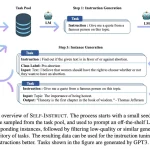As the sharing economy continues to grow, many people are curious about the implications for business. Whether it be renting a room or house, or using a service like Uber or Lyft, there are a number of risks involved. Depending on the nature of the service, you could be responsible for the actions of someone else, and you might not be able to get insurance.
Home-sharing
Home-sharing has become an important part of the sharing economy and business. Typically, it involves renting out one’s primary home for a short period of time, with a nominal fee for the arrangement. The arrangement can involve anything from a couch in someone’s living room to a separate bedroom in an otherwise occupied house.
Home-sharing platforms have been subject to both free market and regulatory scrutiny. Many cities have tried to regulate these platforms, but some have also outlawed them. As a result, the debate over home-sharing services has become more prominent in recent years.
In fact, many Americans have not heard of these home-sharing programs. However, a majority have heard about the debate over whether they should be legal. A new survey finds that most users are in agreement that these programs should be regulated.
Home-sharing is a growing industry that has been attracting more and more people. Some large businesses have seen commercial potential in the sector, and some startups are taking it nationwide.
On-demand services with potential liability risks
The sharing economy is a growing industry, which includes businesses, individuals, and non-profit organizations that use technology to offer goods and services to others. Some examples include renting out a vacation rental, lending a bike or parking spot, and offering a home repair service.
On-demand services can be a way for companies to grow their customer base, increase revenue, and build their brand. However, they also present challenges to insurers. Many of the same risks that plague traditional property and casualty forms apply to on-demand services, such as data breaches, system failure, or hacking attacks.
Insurers are wary of the high liability risk involved with on-demand platforms. While they may be able to write coverage for certain incidents, identifying the liable party is the primary concern.
Although the sharing economy is a large, growing industry, it has not been fully recognized by most insurers. As it matures, the regulatory landscape will become more challenging.
Impact of sharing economy expansion on Rwanda
Sharing economy is emerging as an alternative way to generate additional income. It also helps marginalized groups integrate into the mainstream economic activity. In Rwanda, it is affecting virtually every aspect of life.
For the past decade, Rwanda has sustained steady economic growth rates. This has been accompanied by substantial improvements in living standards. However, there are still challenges to face.
After the 1994 genocide, many Rwandans were forced to flee the country. Some stayed in the Congo, while others fled to Tanzania. These massive migrations paved the way for a major shift in population.
The population of Rwanda was estimated at 7.7 million in 1991. Today, it is 13 million.
Rwanda is a landlocked country that borders Burundi, Tanzania and Uganda. Since the 1994 genocide, the Rwandan Patriotic Front (RPF) has ruled the country. During that time, the country has been a source of global praise for women’s political empowerment.
As part of its economic transformation, the government has implemented several reforms. One of these is a five-year plan called “National Information and Communication Technology (ICT) Plans.”
According to the plan, the government aims to transform Rwanda into a middle income country by 2035. To achieve this goal, the ICT sector is being used to drive innovation across the country. Among other things, it is laying fibre-optic cables and introducing new technology to the market.
Insurance and regulatory issues
The sharing economy creates a variety of liability issues for insurers and businesses. Regulatory policies need to be responsive to customer needs and flexible enough to accommodate the rapidly changing sharing economy.
Insurers must develop products to respond to the needs of sharing economy participants, and regulation needs to be straightforward and transparent. However, traditional regulatory approaches are not compatible with new business models. Traditional models rely on a set of producers and consumers. It is important for insurers to partner with disruptive thinkers to address the needs of this rapidly evolving industry.
Shared economy companies present risks of loss, theft, and injury to users. They may also face litigation risks. To address these issues, insurers can offer customized, tailored coverage. But, traditional regulatory regimes can leave many stakeholders vulnerable.
Some on-demand services provide personal injury and property damage protection. For example, Uber and Lyft drivers have been involved in accidents and suffered lawsuits. A variety of insurers have offered coverage for ridesharing.












